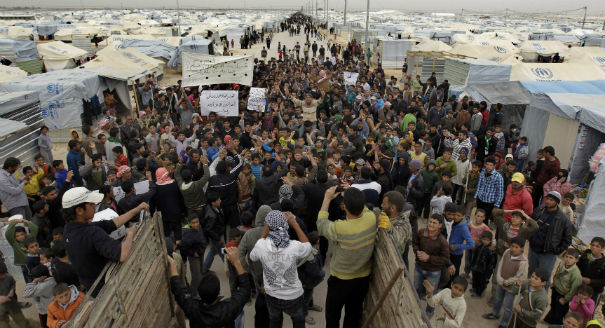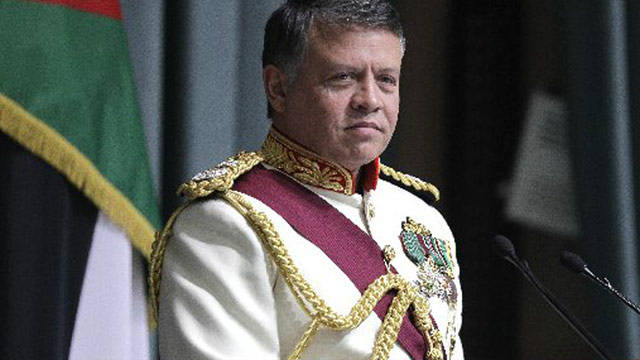
The cost of Syrian refugees
Recent estimates place the total number of Syrian refugees in Jordan at over 500,000. Zaatari refugee camp has become the fourth largest city in Jordan by population—it may not be much of a home, but each refugee costs the Jordanian government 2,500 dinars ($3,750) to host per year. The cost of Syrian refugees is putting a tremendous strain on the economy and is affecting the patronage systems that have ensured tribal loyalty to Jordan’s monarchy in the past. In addition to increasing resentment within the tribal population, the presence of Syrian refugees has also provided a boost in support for the Muslim Brotherhood, Jordan’s best-organized opposition, thereby adding to the tension the Hashemite Kingdom faces.
Jordan’s ability to absorb Syrian refugees has become a growing issue. Its fiscal position has deteriorated since the beginning of the Arab Spring; hosting 500,000 refugees has already cost Jordan over $800 million since the Syrian war began, and unrest across the Arab world, particularly in neighboring Syria, has cost Jordan’s economy as much as $4 billion. Furthermore, foreign assistance, on which Jordan was able to rely while dealing with the influx of Iraqi refugees, is insufficient. Prime Minister Abdullah Ensour recently stated in an interviewthat “the foreign assistance extended to Jordan is not enough in the face of the extraordinary numbers of Syrian refugees who have sought a safe haven in the Kingdom since the start of the Syrian conflict in March 2011.”

Divided we stand: using game theory to understand regional cooperation
Why do cooperative ventures between some countries work, and not others? Current literature identifies lack of common threats, base identities, and overlapping goals as dilemmas that make cooperation among certain sovereign states unlikely. Indeed, if cooperative ventures are viewed from a Darwin-Waltz perspective,[1] weak institutions, norms, and domestic regimes explain the difficulties countries face in collaborating. Adding to these traditional explanations, in this post I want to use game theory to introduce the concept of a ‘supervising agent’ to identify why regional integration may be unsustainable in the long run.

The Principle of Being a Principal: understanding the reasons behind the durability of Jordan’s monarchy
When the ‘Arab Spring’ reached Jordan in 2011, every local and international news outlet repeated the same message: ‘the people want to topple the regime’. But reflecting on my involvement with Jordan over the years, I wonder which ‘people’ they were referring to. The people off the street didn’t want to overthrow their King. On the street, the protests I drove past on the way to work called for evolution rather than revolution. Public gatherings, often claimed by the media as reaching the tens of thousands, were cancelled on numerous occasions due to low attendance. In stark contrast to the violent force employed in other Arab monarchies, the police were praised for handing out fruit juice to protestors. In fact, I often heard pro-reform bloggers and journalists being criticised as ‘attention-seeking nobodies’. Two years on, and 7,000 street demonstrations later, ‘the people’ have still not toppled the regime. This begs the question: what do the people want? Do the people want to keep their monarchy?










